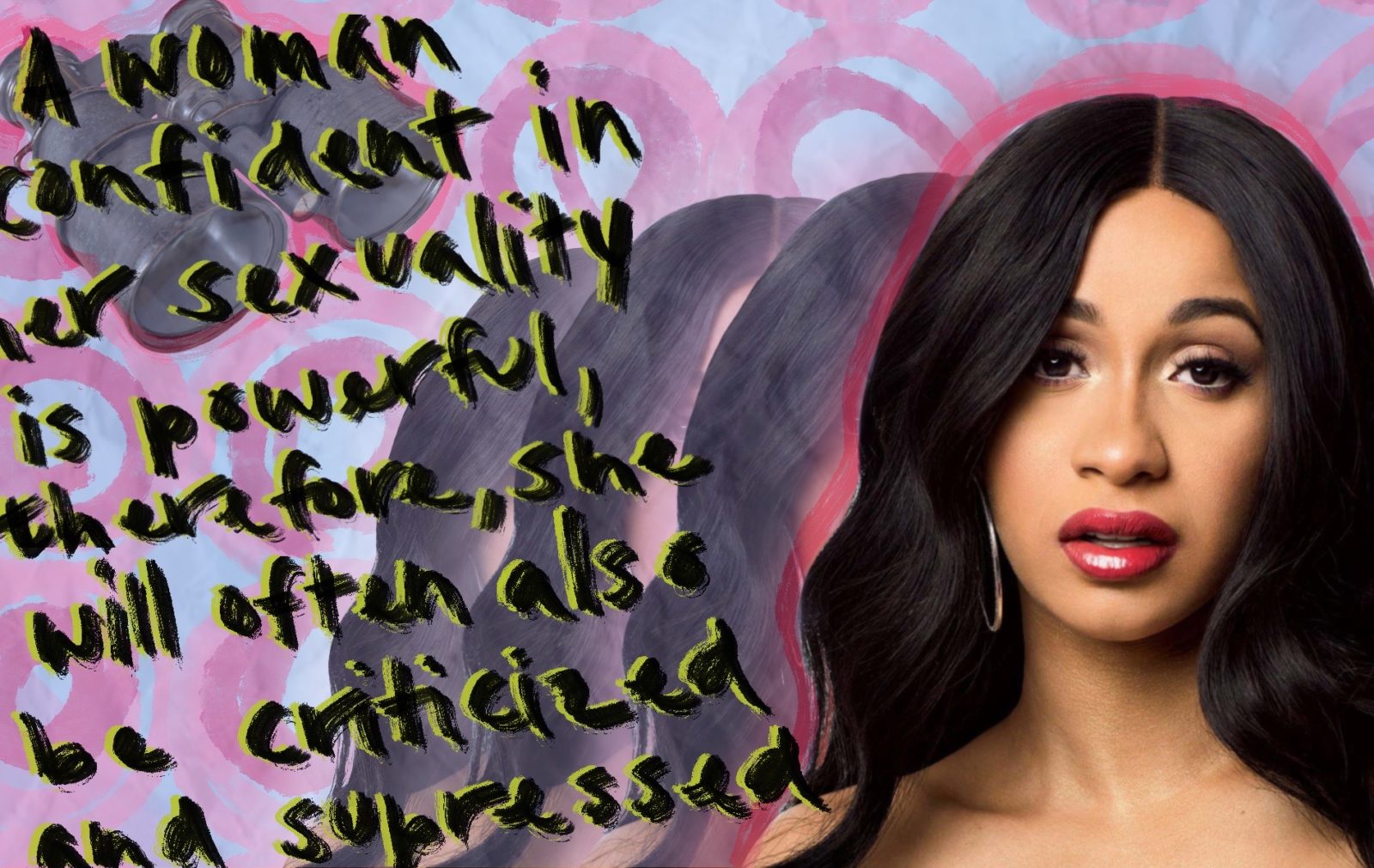Why there is a need for women-centered conversations about sex in the media

The podcast produced by Barstool Sports titled “Call Her Daddy,” has recently become wildly popular. Filled with comprehensive advice and tantalizing stories delivered in a locker room-style banter, many listeners are left stunned.
Recommended to me by one of my best friends, I tuned in and immediately, I was hooked.
However, for me, the content was not too surprising. Perhaps most shocking element, is the fact that this podcast is hosted by two women, Alexandra Cooper and Sophia Franklyn, that tell stories and provide detailed tips about one thing: sex.
What?! Is that even okay? Women talking, dishing, and sharing explicit stories about sex?
While women have been fighting for equality for generations, and positive strides by some female leaders have been made, generalizations and expectations of “what” a woman should be, and “how” a woman should act, have not changed much.
The world of arts and entertainment has long been an outlet for creators to express their personal and societal experiences and struggles. In hindsight, looking back at many troubled times, it is also evident that pop culture acts as a mirror, exposing the problems we are collectively facing as a society.
As someone who is pretty comfortable talking about sex and the female body, I did not expect to blush when I tuned in to “Call Her Daddy.” Yet as I listened, I realized that I reacted that way due to how rare conversations like these really are for women today.
This initial discomfort caused me to reflect on the ways in which we are taught and groomed to discuss sex and display our sexuality as women. My conclusion, based upon my personal experience, is that women are advised to only be sexual when it is convenient for, or desired by, someone else: usually, men.
In society, the messages we absorb about what it means to be a woman are directly linked to how to please a man. Meanwhile, we are trained to believe that there is something wrong, whether through our appearance, language, interactions or attire, with being sexual and pleasing ourselves.
A woman confident in her own sexuality is powerful, therefore, she will often also be criticized and suppressed. This culture of shame surrounding feminine sexuality has a profound impact on young girls, who — through social media and mainstream music — are being taught that their value is based on the approval and acceptance of others.
This issue is magnified in the film “Cuties” (originally “Mignonnes” in France). The director, Maïmouna Doucouré, came under intense scrutiny for the sexualization of young girls in the movie. Audience members were enraged by sexual dance scenes performed by 11-year-old dancers, appalled by their outfits and uncomfortable with their actions.
In an article authored by Doucouré, she explained that “Cuties” was specifically created to show the pressure young girls feel. This pressure being to live up to unrealistic expectations of what it means to be a woman.
As a director, she expected the audience to be uncomfortable. Her goal was to begin a conversation about the sexualization of young children caused by how women are portrayed in the media they consume.
Also receiving widespread backlash, is the currently popular and very sexually-descriptive rap song WAP by Cardi B and Megan Thee Stallion. The song was deemed “too sexual” by actor Ben Shapiro. Artist CeeLo Green commented saying “there should be a time and a place for adult content.” Even more extreme, congressional candidate James P. Bradley said it made him “want to pour holy water in my ears.”
Songs about sex are not new in rap, it is just new to hear sexual themes rapped by female voices. Male rap artists often release very sexual songs, many very demeaning toward women, and in turn receive little to no retaliation.
There are many forms of media where men are encouraged, and even expected, to brag and talk about their sex lives. Whereas, female artists in comparison have been discouraged from describing their own sexual encounters through their work.
Women can gain power by seeking out progressive media such as the aforementioned podcast, film and song to self-educate. They can also think about the impact of media that shapes the lives of young people and gain a level of comfort with their own sexuality.
There is still much more work to do. This begins with supporting and sharing the works of female artists striving to normalize women-centered conversations about sex and sexuality.
This will lead to women gaining their power.
Here is a short playlist I decided to make with songs from my favorites that range in content from sex to embracing sexuality but all focus on the central topic of female empowerment.

